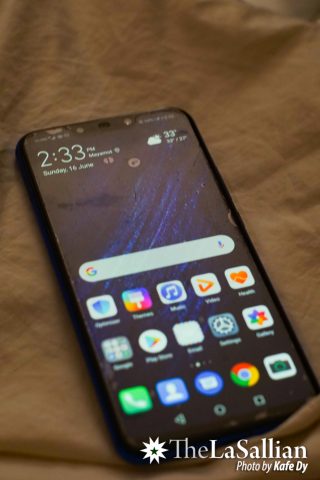One way or another, the birth of a smartphone changed the way we interact with the world. With a single tap, one can access countless types of information and online applications to satisfy needs and wants. Whether going on social media or playing games, it is clear how smartphones give users access to endless content and gateways to interact with the world. However, this privilege is almost taken for granted until it is taken away.
Last May 19, Google officially banned Huawei from utilizing the Android mobile operating system and its technical services after the Trump administration included the company in a trade blacklist—a list of companies that could pose a threat to the national security of the United States (US). As a result, Huawei users will not receive future updates for Android and Google applications like Gmail and YouTube. Android’s official Twitter account released a tweet the following day to address the issue, which stated, “For Huawei users’ questions regarding our steps to comply with the recent US government actions: We assure you [that] while we are complying with all US government requirements, services like Google Play & security from Google Play Protect will keep functioning on your existing Huawei [devices].”
Huawei released an official statement on the matter, assuring their customers that they will continue to give security updates to build a “safe and sustainable software for everyone to access for a better smartphone experience”. To ease the damages sustained by current and future Huawei users, the US Commerce Department gave the company a temporary license to Android’s software updates and services valid until August 19.
Based on these updates, it is almost apparent that Google’s representatives were coerced by the US government to comply with this order. Being the first major blow to hit Huawei, this act only ignited the tension between China and the US instead of reinforcing national security of the US, which was the latter’s intention. Since the majority of the components of Apple’s products are manufactured in China, it is possible that the Chinese government could cut business ties with Apple if necessary, to which Huawei’s Chief Executive Officer Ren Zhengfei told Bloomberg that he would not want to address this issue “the way the US did” as they have started preparing for this.

For Huawei users in the Philippines, this may leave a large impact on their productivity. Students and young professionals who use Huawei products may find it harder to use their applications for work. Security and system updates are definitely needed to function more actively and efficiently. Without those updates, Huawei devices’ performance can slowly diminish, which will ultimately affect that of its users.
In order to further reassure them, the Department of Information and Communications Technology (DICT), through a Philippine Star report, said that this ban would have a “small impact” on the Philippine telecommunications industry. DICT stated that there has been no reported incident from any local telecommunications companies of a national security breach from their Huawei products but will continue to monitor their networks through cybersecurity measures.
To make matters worse, Philippine Star also reported last June 7 that Facebook will comply with US orders to cut off their ties with Huawei from using their social networking applications including Instagram and WhatsApp on their devices. However, Facebook announced that current Huawei users with Facebook applications running on their devices will continue to be able to use the apps and receive updates from the company which will leave future Huawei devices affected.
What does this all mean then to smartphone users? Google’s decision may have just opened the door for a new competitor and a new mobile operating system. Huawei has been developing their own operating system called HongMeng OS even before the buzz, in case the issue between Huawei and the US government escalated. The company claimed that the system will reportedly still run Android applications. Its projected release in China and globally will be in late 2019 and in 2020, respectively.
Though this ban may not entirely affect non-Huawei users, it can definitely affect the future of the smartphone industry. The very fact that the US has started to persuade its allies to ban the use of Huawei products and their 5G mobile networks says a lot about their fear of disruptive innovation.
At the end of the day, it all boils down to delivering what the consumers need and want. Huawei’s ban may affect billions of consumers worldwide, but that does not mean that they will stop operating. They will continue to do what they do best, which is to provide technology that will meet the consumers’ needs for more efficient smartphone experience.
